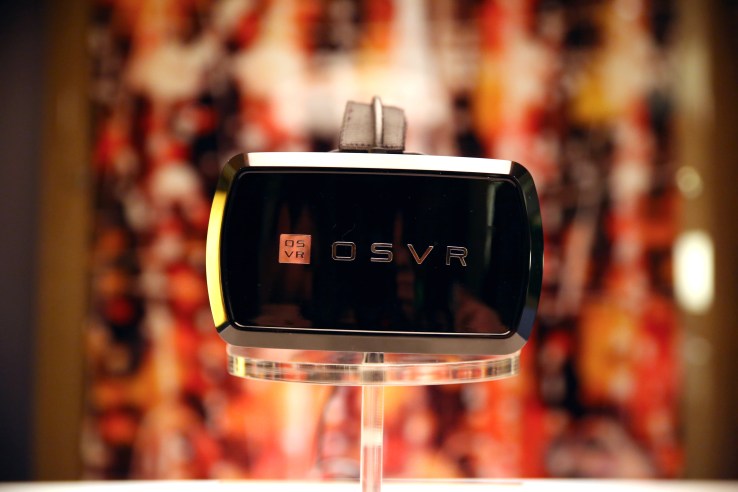
For gamers worried about exclusive Oculus titles and the diverging future of content support on virtual reality, OSVR is making a bid to take over the platform and ensure that content is available across all hardware.
The ecosystem received a major vote of confidence today from one of the largest gaming engines used by developers.
Sensics, which helped lead the creation of OSVR alongside Razer, announced today that Epic’s Unreal Engine 4.12 would soon be gaining native OSVR support.
OSVR is an effort to create some sort of consistency in experience for the great deal of disparate experiences in the virtual reality landscape, while also making it easier for hardware tinkerers to create their own experiences using the wide variety of headsets, input methods and sensors on the market.
“The exponential increase in the number of VR devices makes it difficult for developers and manufacturers to keep up. New HMDs, motion trackers, hand and finger sensors, eye trackers, body suits, motion platforms and more are coming to market every month,” said Yuval Boger, CEO of Sensics and co-founder of OSVR, in a statement.
By adding support for OSVR, Unreal makes it that much easier for developers to open their content to a platform that is particularly attractive to younger VR hardware startups, allowing game developers easy access to the most hardcore of early adopters, as well as those trying out their first VR experiences.
“[OSVR’s] inclusion in the engine gives developers out-of-the-box access to many more types of VR devices that use the OSVR ecosystem, and helps ensure that Unreal Engine 4 remains the top choice for developing high-quality, cross-platform VR experiences,” said Nick Whiting, lead VR engineer at Epic Games.


Comments are closed.